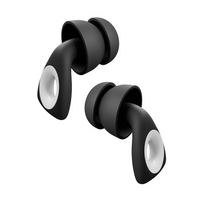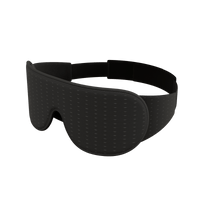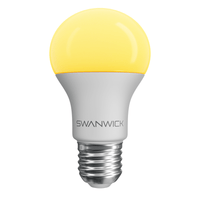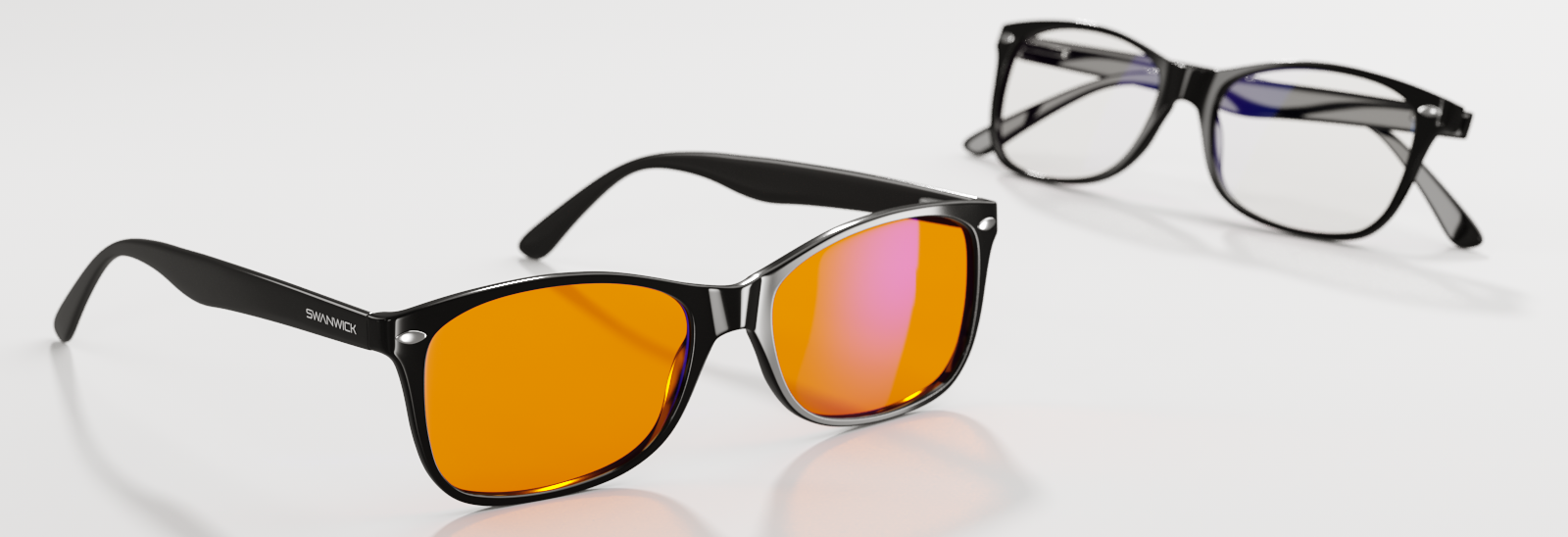According to science, a lack of quality sleep has been shown to cause fatigue, poor focus, and low energy, decreasing productivity and affecting work outcomes. A number of factors can hinder sleep quality, but with the increased use of technology lately, blue light overexposure reached the top of the list.
With that, the rise of blue light protection sharply increased.
The questions remain:
New Groundbreaking Research
As much as Swanwick takes pride in the SleepScore scientific study that validates Night Swannies as effective blue light protection that improves sleep, new scientific proof shows additional outcomes.
The research, "The Effects of Blue-Light Filtration on Sleep and Work Outcomes", appears in the Journal of Applied Psychology, co-authored by Cristiano L Guarana, a management professor at Indiana University's Kelley School of Business, and Christopher M. Barnes, a management professor at the University of Washington's Foster School of Business.
Note: The researchers had no financial support or compensation. Swanwick donated the blue light blocking glasses to participants.
Professor Guarana said, "We found that wearing blue-light filtering glasses is an effective intervention to improve sleep, work engagement, task performance, and organizational citizenship behavior and reduced counterproductive work behavior," and "Wearing blue-light filtering glasses creates a form of physiologic darkness, thus improving both sleep quantity and quality," he added.
A Gigantic Return On Investment
While millions of Americans dig into their pockets each month for sleep remedies that only give 20 minutes extra sleep and rely on free blue light filtering apps that don’t work, entrepreneurs and organizations invest in Swannies Blue Light Blocking Glasses to up their game.
According to Barnes, professor of management and the Evert McCabe Endowed Fellow at the University of Washington's Foster School of Business, "This study provides evidence of a very cost-effective means of improving employee sleep and work outcomes, and the implied return on investment is gigantic. I personally do not know of any other interventions that would be that powerful at that low of a cost."
"Blue-light exposure should also be of concern to organizations," Guarana said. "The ubiquity of the phenomenon suggests that control of blue-light exposure may be a viable first step for organizations to protect the circadian cycles of their employees from disruption."
Think about this. Would you invest between $60 - $200 on a scientifically-proven product that enhances sleep, work outcomes, and overall performance with no side effects? Or would you rather be the average American that spends $1200 a year on pharmaceutical drugs that cause debilitating side effects?
START YOUR JOURNEY TOWARD ENHANCED WORK OUTCOMES NOW!
Grab your cost-effective blue light protection.
 Reusable Earplugs Kit
$24.99 USD
Reusable Earplugs Kit
$24.99 USD
 Peak Performance Sleep Mask
$34.99 USD
Peak Performance Sleep Mask
$34.99 USD
 Eyewear Care Kit
$14.99 USD
Eyewear Care Kit
$14.99 USD
 Anti-Blue Light LED Bulb - Amber
$29.99 USD
Anti-Blue Light LED Bulb - Amber
$29.99 USD
 Anti-Blue Light LED Bulb - Red
$29.99 USD
Anti-Blue Light LED Bulb - Red
$29.99 USD







Leave a comment
Comments will be approved before showing up.